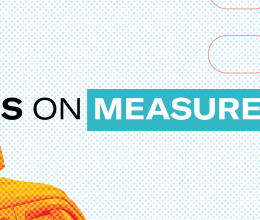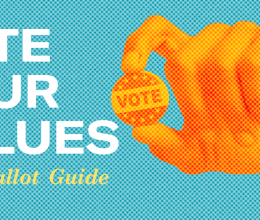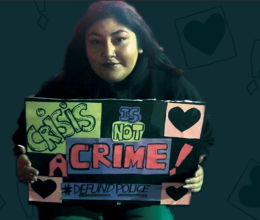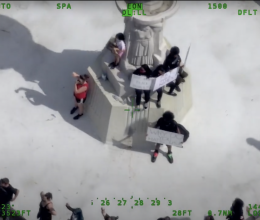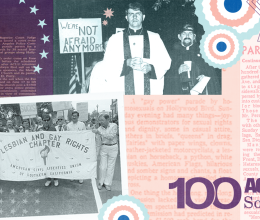
Likely voters in California overwhelmingly support allowing public access to investigation reports in all cases where a police officer is accused of misconduct, a statewide poll released today has found.
California laws are some of the most secretive in the country when it comes to police misconduct, placing statutory barriers around details of investigations into shootings and other uses of force that keep them hidden from public scrutiny.
But the poll indicates that California voters are ready for major reforms, finding widespread public support for lifting that veil of secrecy. The poll, conducted on behalf of the ACLU of California Center for Advocacy & Policy, also found that four of five voters want police to wear body cameras, and voters support giving the public access to that footage.
“We give police more authority than nearly any other public servant — the power to stop us and our neighbors, detain us, search us, even to kill in our name,” said Peter Bibring, director of police practices for the American Civil Liberties Union of Southern California. “The public has a right to know how police use that authority, and especially have a right to know what happened when police abuse that authority. This secrecy around peace officer records undermines transparency, obstructs efforts to hold law enforcement accountable for its actions, and breeds distrust between police and the communities they serve.”
Almost four in five California voters (79%) say that where police have engaged in misconduct, the public should have access to the findings and conclusions of investigations into that misconduct. That overwhelming support for reform carries across all ethnicities within the state, including more than nine out of ten African American voters (91 percent), five out of six Latino and Asian voters (84 percent) and over three-quarters of white voters (76 percent). That support also crosses party lines as strong majorities of Democrats (87 percent), Republicans (67 percent) and independent voters (78 percent) favor public access.
Nearly two-thirds of likely voters (64 percent) support public access to investigation reports in cases that simply allege officer misconduct. That support includes strong majorities in all major ethnic groups in the state including Asian (79 percent), African American (78 percent), Latino (67 percent) and white (60 percent) voters. Bridging the partisan divide, Democratic (68 percent), Republican (56 percent) and independent (65 percent) voters all broadly support allowing public access to police misconduct investigations in all cases where an officer is accused of misconduct.
Under existing law, no police personnel records can be disclosed, a restriction resulting in the public being unable to find out if an officer has ever been involved in serious misconduct. Bolstered by court decisions, police departments have extended their interpretation of this confidentiality to deny public access to almost any information that could be used in personnel decisions, including internal affairs investigations and hearings on civilian complaints.
"California voters overwhelmingly see a problem with police secrecy and support reforms,” said Natasha Minsker, Director of the ACLU of California Center for Advocacy & Policy. “But for years, the law enforcement lobby has stopped every effort to bring transparency to police misconduct investigations. Our elected leaders need to stand up for the voters or the voters will stand up for themselves."
The poll also found that support for requiring police officers to wear body cameras is nearly universal, with more than five of six voters (84 percent) favoring this requirement compared to just 8 percent who oppose.
African American voters (91 percent) show the highest support among ethnic groups for requiring the use of body cameras, while Latino (87 percent), white (83 percent) and Asian (80 percent) voters also show resounding support for recording police interactions and stops.
When it comes to the public release of body camera footage, nearly three-quarters of voters (74 percent) agree that footage should be publicly accessible in any case where an officer is reported for misconduct. Nearly the same portion of voters (72 percent) agrees that footage should be made public any time an officer uses force.
The online poll by Tulchin Research of likely November 2016 voters was conducted from July 10-14. It included a base sample of 800 voters with an oversample of 100 African American voters to provide increased statistical confidence for that specific demographic group. The margin of error for the statewide base sample is +/- 3.46 percent.
Read Detailed Polling Data Here.

